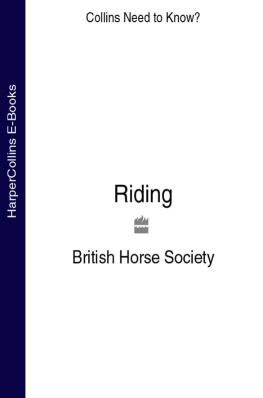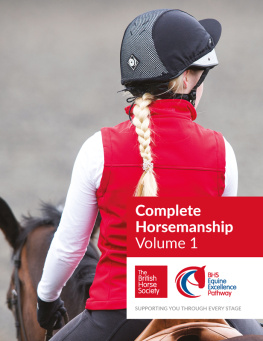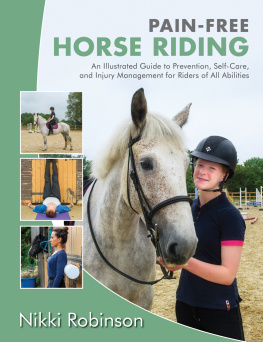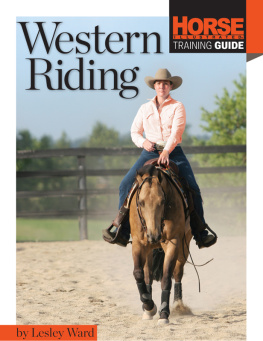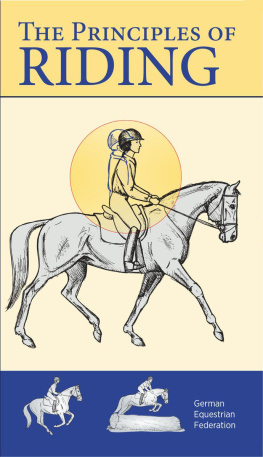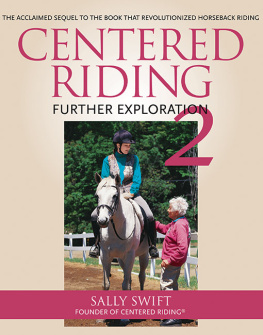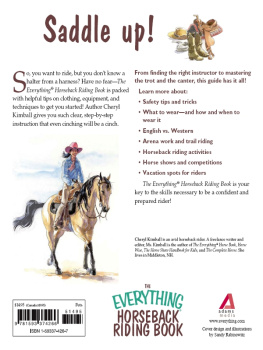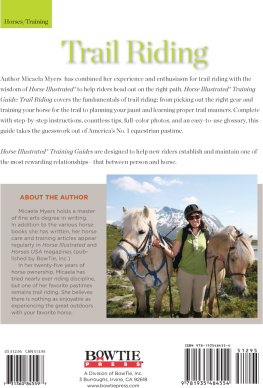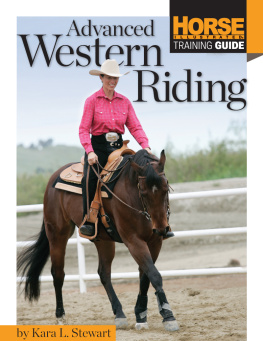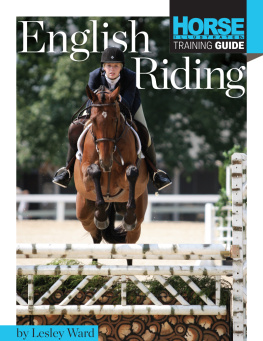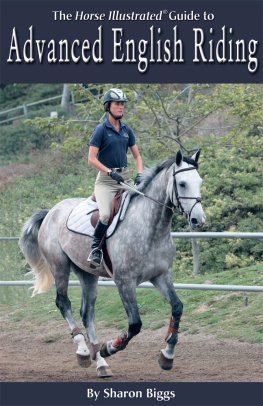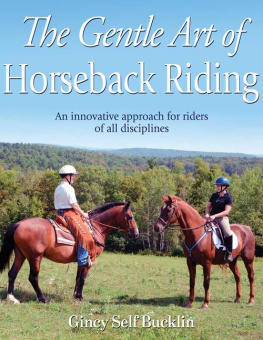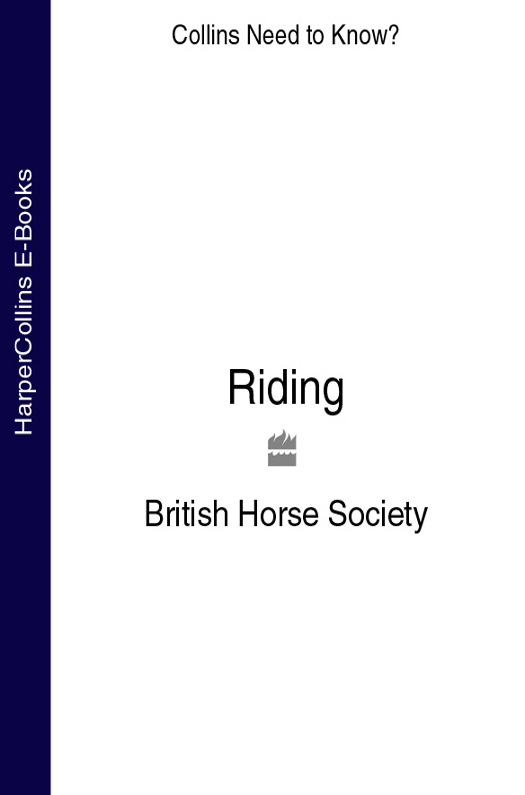
Contents
The British Horse Society was founded in 1947 to work for the good of horses and riders. Membership now stands at almost 65,000. In addition, there are 38,000 members of affiliated Riding Clubs. The Societys charitable objectives are to promote the welfare, care and use of horses and ponies.
must know
Off-road routes
The Society is involved with the additions of promoted off-road routes. All these routes are key initiatives of the Ride-UK project, which was launched by The BHS in 2000 with the vision of creating a network of riding and driving routes throughout the UK.
Access and rights of way
The Societys network of over 170 Bridleway Officers and 130 Affiliated Bridleway Groups targets rural and urban access. The BHS is in consultation with Highway Authorities and other access organizations. The DEFRA (Department for Environment, Food & Rural Affairs) commissioned British Horse Industry Strategy aims to increase access to off-road riding and carriage driving. The BHS Access Department is working hard to achieve this, together with its partners in the Equestrian Access Forum.
Breeding and welfare
Breeding and welfare is another important aspect of The BHSs work. To prevent neglect and cruelty, the Society educates and advises horse owners, especially new ones, on correct management practices. Over 90 BHS county Welfare representatives support and advise owners throughout the country. BHS Welfare represents over 40 breed societies affiliated to The BHS Horse and Pony Breeds committee. Active BHS participation on the National Equine Welfare Council, DEFRA sub-committee meetings and Horserace Betting Levy Board committee meetings helps ensure the future wellbeing of horses in the UK.
Safety
The BHS Safety Department is involved in every aspect of equestrian safety, representing all riders. The Society works closely with the Department for Transport and, as a result of their campaigning, the Highway Code includes specific advice to all who take horses on the road. Work with the County Surveyors Society has led to joint guidance being issued to Highway Authorities. The BHS Riding & Road Safety Tests take place throughout the UK and Eire with 4,500 people each year learning to ride safely on the roads. Information is available on safe equipment for horses and riders, with representation from The Society on many committees, including BSI and BETA. Working closely with other safety-related organizations, the Safety Department ensures that no aspect of equestrian safety is overlooked.
must know
How is it done?
The BHS is governed by a board of Trustees who oversee the work, funded largely by membership subscriptions. The national headquarters at Stoneleigh is supported by a network of regional and county committees made up of hard-working, enthusiastic volunteers. The committees are supported by Regional Development Officers who are full-time employees of the society. To support the work of The BHS, contact the membership department on 01926 707854, or log on to The BHS website at www.bhs.org.uk
Training and education
The Training and Education Department administers a wide range of examinations, ranging from Progressive Riding Tests for recreational riders through to a full professional qualification structure. Qualified instructors work to ensure that horses are trained and ridden sympathetically. The BHS believes the public should be able to expect a high standard of teaching and safety from riding instructors, and it has created a Register of Instructors to meet this need. Since 1961, The BHS has run a scheme for the Approval of Riding Schools. There are approximately 950 BHS approved riding establishments in Britain and abroad. There is also an approved livery yard scheme to encourage livery yards to set high standards for their clients.

Now that you have made the decision that you want to learn to ride or to pick up the skill again, you need to find a riding school that will suit your requirements. Riding schools vary greatly in their size, location and the facilities that they offer. In the UK, all riding schools have to hold a Local Authority licence, and this is the first thing you need to check.
Finding a riding school
).
must know
Points to look for
The staff should be welcoming and friendly. They must be prepared to show you around and, if possible, let you watch a lesson in progress.
All areas of the stable yard should be clean, neat and tidy.
The horses should look well groomed, healthy and content.
The atmosphere should be welcoming and there should be an air of efficiency about the place generally.
Your goals
Before you start, you need to decide on what your goals are for your riding and what you want to get out of it. If you want to become competent enough just to hack out safely and to enjoy the countryside, then you should consider carefully whether it is worth starting to learn to ride at a riding school where they do not hack out, as you will have to move on once you are a more competent rider. On the other hand, however, a riding school that concentrates solely on instruction may get you up to your required standard more quickly.
Visit before you book
Your nearest riding school may not be the right one for you, so you must be prepared to telephone a few different centres before you make a visit. An initial phone call will give you a good idea as to whether a particular riding school has the potential to fulfil all your requirements and how customer-friendly the staff are. It is also very important for you to visit the centre and to have a look around to get the feel of the establishment and discuss your needs before booking your first lesson. So even if it sounds ideal over the telephone, do go and have a look.
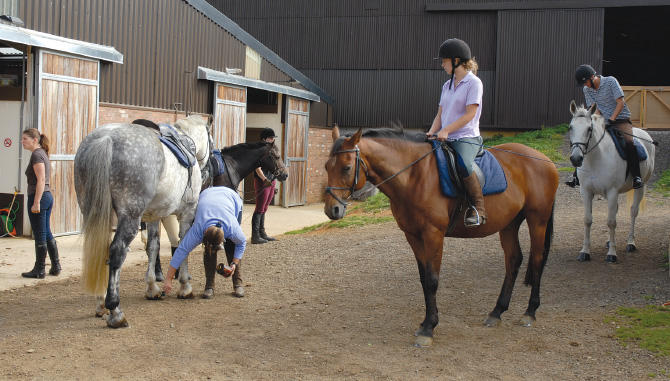
Even at a really busy riding school, the horses and ponies will be well cared for, and health and safety will be a priority.
What to ask
Do not be afraid to ask the staff questions about the riding schools organization of riding lessons and how they like to assess potential new clients. You will need to feel comfortable about coming to the riding establishment, and confident that the staff will have your best interests at heart.
Ask about the qualifications that the staff have. The Preliminary Teaching test is the first BHS teaching qualification whereby members of staff are allowed to teach entirely by themselves. Teachers with this qualification may be newly qualified or could be very experienced indeed but have chosen not to progress further up the qualifications ladder.
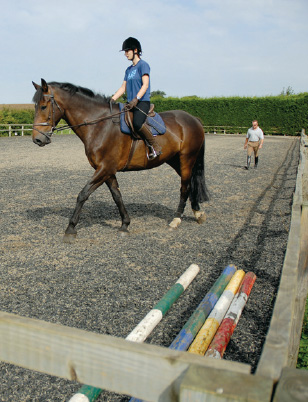
A well-run riding school will make sure that all the areas, including riding surfaces, are maintained to the highest standards. Surfaces should be flat and never dusty.

